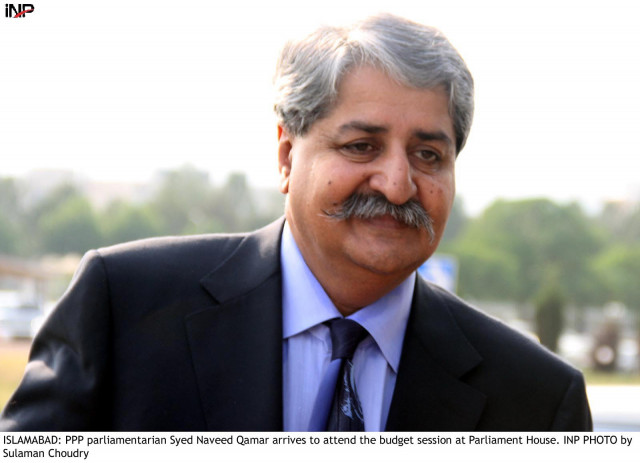BISP budget: PAC seeks action against officials for slashing funds
Expresses reservations over country’s fiscal management

The accountability watchdog of parliament has sought administrative action against finance ministry officials amid revelations that the Benazir Income Support Programme (BISP) funds were slashed by 30% during the first three years of its implementation.
Headed by acting chairman Naveed Qamar, the Public Accounts Committee (PAC) on Tuesday also expressed its disapproval over the manner in which the finance ministry is running the country’s fiscal affairs.

For the period of fiscal years 2009-10 to 2011-12, Rs170 billion in funds were approved for the BISP by the lower house of parliament but the actual spending remained at Rs118.7 billion or 70% of the budgetary allocations, according to appropriation accounts of the period presented to the parliamentary watchdog.
Subsequently, the Accountant General of Pakistan Revenue framed three objections over the spending, which was far less than the budgetary allocation for the programme that provides financial assistance to low-income families through bi-monthly cash payments.
“The (BISP) money was not cleared by the Ministry of Finance due to breach of ways and means limit,” a representative of the ministry informed the PAC. Defending the ministry’s stance, he said that the ministry did not have sufficient funds for fulfilling the budgetary allocations. “The ministry of finance’s officials should be taken to the task for having lopsided priority despite strong political commitment for the BISP,” said Naveed Qamar whose party had designed the programme to dole out monthly stipends to the poorest of the poor.
Taking a swipe at the government, Qamar said the inability to disburse cash among poorest of the poor was creating sense of deprivation among this segment of the society.
According to the report, during the fiscal year 2009-10, the ministry released Rs40.3 billion in funds or 58% of the annual allocation of Rs70 billion. Similarly, in 2010-11, the releases remained at Rs35.7 billion or 71.4% of the commitments. In 2011-12, the releases were Rs42.7 billion or 85% of the allocations.
Commenting on the issue, BISP Director General Masood Sherwani said that the requests were turned down despite repeated reminders to the finance ministry.
Against Rs75 billion allocation for last fiscal year 2013-14, the ministry of finance actually spent Rs67.7 billion, according to ministry of finance’s own report. The spending was 9.7% or Rs7.3 billion less than the amount approved by the National Assembly while sanctioning the first budget of the PML-N government.
For the current financial year 2014-15, the government has allocated Rs97.5 billion for the programme and was supposed to disburse slightly over Rs24 billion in the first quarter. But against this budgetary target, the government could only disburse Rs20.7 billion among 4.63 million families from July to September, according to data compiled by the BISP secretariat.
Published in The Express Tribune, November 19th, 2014.



















COMMENTS
Comments are moderated and generally will be posted if they are on-topic and not abusive.
For more information, please see our Comments FAQ